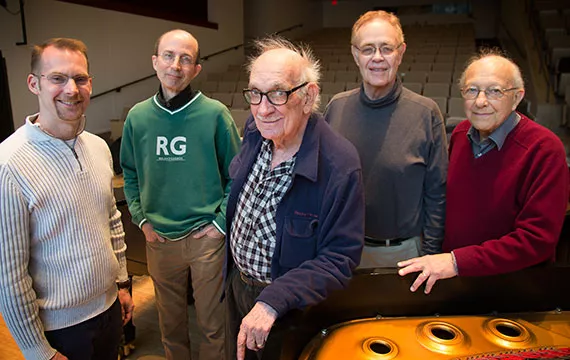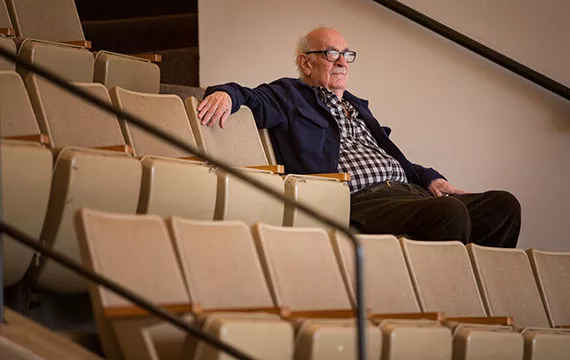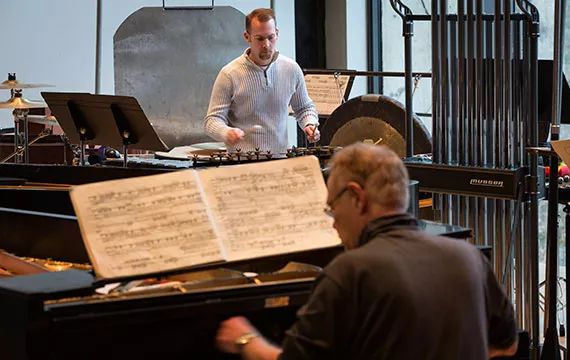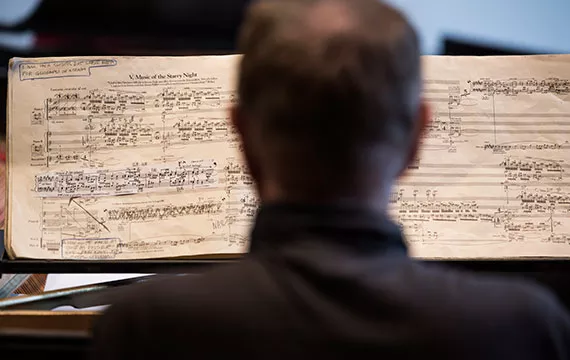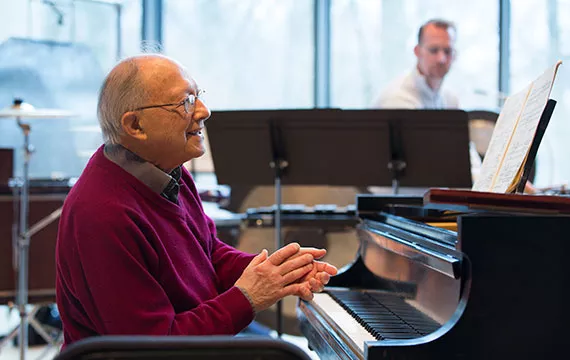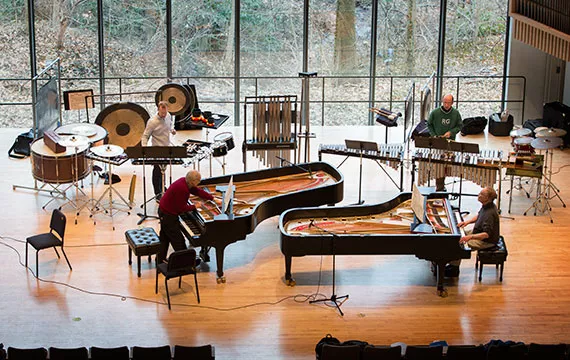His final appearance as artistic director of Orchestra 2001 would have been special enough for James Freeman.
“When you’ve been doing something for 27 years, the last time is going to be a pretty special sensation,” says the Daniel Underhill Professor Emeritus of Music.
But there are extra layers to “Crumb@85: Celebration and Reunion” event, held on March 27 in Lang Concert Hall.
It featured Music for a Summer Evening, which was commissioned for the inauguration of the hall in 1974 and has come to be regarded as a 20th century classic. It reunites Freeman with the other pianist from that premiere, long-time colleague and friend Gilbert Kalish. And the Pulitzer Prize-winning composer of the piece, George Crumb H'89, will be on hand to celebrate his 85th birthday.
“It makes the whole evening really extraordinary, I think,” says Freeman. “Not just for me, I hope, but for everyone participating, and for the audience. It’s a really special event.”
The performance also featured percussionists William Kerrigan and David Nelson. Music for a Summer Evening calls for “extensive, demanding tubular bells, crotales, claves, and much more, as well as slide whistle, a metal thunder sheet, the 'jawbone of an ass,' and a guiro for the pianists to play,” notes SPIN. “Together, these ingredients comprise an atonal, unpredictable exploration of rhythm.”
Freeman founded Orchestra 2001 in 1988 and it has been Swarthmore’s Ensemble in Residence since 1992. It has offered the College community a distinguished and innovative series of contemporary classical music concerts.
“Together with the fact that Swarthmore's own faculty composers are in my opinion among the best and most gifted in America,” says Freeman, “that has meant that the College has developed a really unique reputation and standing in the world for new music.”
It has also opened doors for countless students over the years. Its concerts and open rehearsals, which Freeman notes allows students to immerse themselves in a piece, have allowed them to perform, compose, conduct, and stage mange — everywhere from Swarthmore to Salzburg.
“I’d just like to congratulate Swarthmore administration for its support of Orchestra 2001 for the past 20 years,” says Freeman. “Not every college or university would have had the wisdom and farsightedness to do something like this, and to recognize all the positive advantages the relationship brings to the College. “
